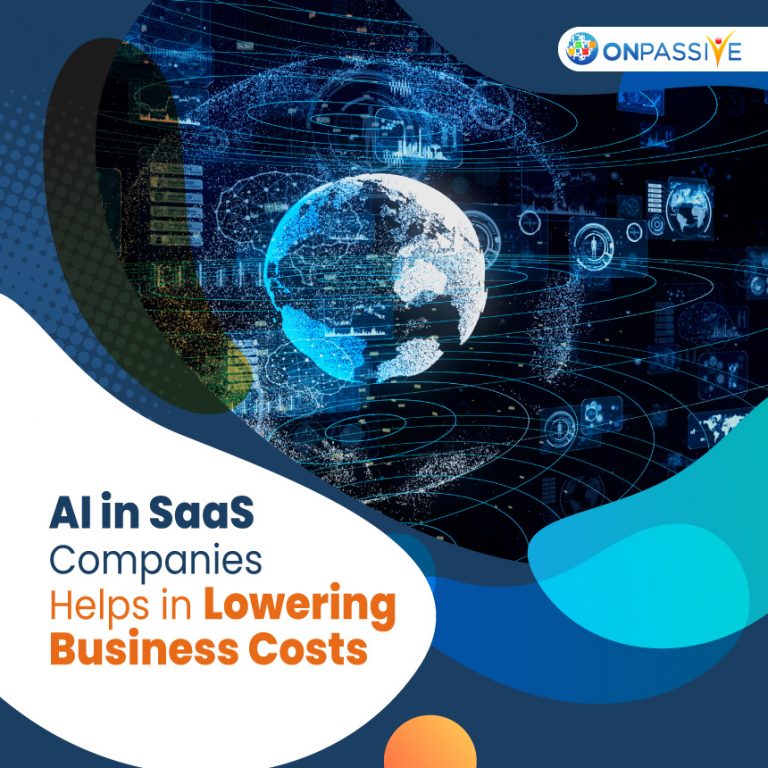
In the early stages of concept validation and growth, SaaS businesses, like any other, confront significant hurdles. Because they are so reliant on technology, staying abreast of new developments is essential to their success.
Artificial Intelligence (AI) is among the services that a SaaS company may offer, and it is rapidly becoming a part of daily life. Millions of individuals utilize artificial intelligence regularly, yet only approximately 37% are aware of it.
From email spam filters to virtual house assistants, it may be found in a variety of places. When you use Siri on your iPhone, you’re employing artificial intelligence.
Artificial intelligence has begun to be recognized by businesses as a means of lowering operating costs, saving time, and boosting efficiency. As a result, AI is now being integrated into corporate processes and activities.
AI can turn enterprises completely automated. Here’s how a SaaS company will appear in the future with AI integrated into its everyday operations, as well as how SaaS companies are now employing AI.
Benefits Of AI And Machine Learning Are Used By SaaS Companies?
The trend of machine learning and artificial intelligence is increasingly being embraced by SaaS. This region is currently attracting a lot of attention from investors. Here are a few SaaS systems in which artificial intelligence plays a key role.
● Personalization
Artificial intelligence has the ability to bring hyper-personalization to SaaS. This personalization has previously been seen in a number of smartphone apps, such as Starbucks’ My Starbucks Barista. Artificial intelligence’s capacity to learn and regular language processing depending on the customer’s recent interactions can aid in the creation of customer-centric user interfaces.
Here’s an illustration. If we consider a SaaS that lacks AI capabilities and starts adding more and more features and services to it, we will simply end up crowding the user interface. For the consumer, this will add to the complexity. On the contrary, if AI is employed, it will aid in customization and a better understanding of the situation.
● Automation
Automation, in conjunction with machine learning and artificial intelligence, maybe advantageous in a variety of ways. It can improve user experience in places where manual activities were previously required; for example, a chatbot that aids users by answering simple inquiries.
Automation reduces expenses by eliminating the need to hire additional workers to handle greater tasks. When a client asks for a login reset, a chatbot answers with a robotic response in the form of a link to an information base, freeing up customer service professionals to focus on more difficult queries.
One of the numerous problems that SaaS companies confront is keeping consumers engaged from all angles. This might be difficult to do while providing the finest answers to customer service demands and ensuring that each client is happy with his or her experience. Because artificial intelligence reduces alienation and makes it feel like a human effort, it can be helpful.
There are several instances of different applications that use this functionality, such as Verizon or banking apps, where bots constantly reply to queries. If a human operator is required, the bot may refer the consumer to one.
● Predictions
Artificial intelligence may be used in a variety of ways in the SaaS industry. It can compel predictive analytics to produce a better user experience and reduce SaaS churn. Machine learning, for example, can anticipate a user’s preference or behaviour, triggering actions or warnings when the user looks to be disconnecting.
● Identifying Threats
Cloud security has long been a hot problem among SaaS providers, and traditional security approaches are ineffective. In order to fill in for new threats, certain perimeter devices require human input.
Artificial intelligence gives SaaS security services the ability to self-replicate and adapt to new security concerns. Oracle’s cloud security services now include artificial intelligence and machine learning. This functionality has made automatic threat detection easier.
Conclusion
AI has a bright future ahead of it, and businesses should start implementing and integrating the technology into their daily operations as soon as possible. The technology has been shown to save corporate costs while enhancing effectiveness and efficiency.
AI should not be regarded as a replacement for human resources but instead as a technology that helps humans focus on jobs that cannot be mechanized, making them more productive.
For any SaaS company, AI provides a way to save starting expenses, slowing down the setup process and ultimately hurting the small business’s profitability. To know more about SaaS companies and AI, contact GlobalSaaS.


